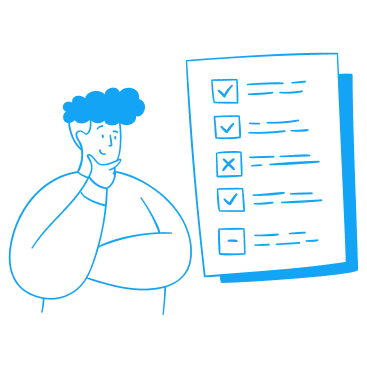Best CMAT Coaching in India


- The candidate must hold a Bachelor’s Degree in any discipline. Candidates appearing for the final year of Bachelor’s Degree, whose result will be declared before commencement of admission for academic year 2023-24, can also apply for CMAT-2024.
- The candidate must be a citizen of India.
- There is no age restriction for appearing in CMAT – 2024
- TCM Education stands as a leader in CMAT coaching, shaping the success stories of aspirants across India. With a team of experienced mentors, we offer more than just teaching—we provide personalized guidance tailored to your unique needs. Our approach combines comprehensive study material, regular mock tests, and advanced AI-powered performance analysis, ensuring thorough preparation. Beyond academics, we emphasize holistic growth with resources like newspapers, magazines, and personality development sessions. What truly sets us apart is exclusive one-on-one mentoring by IIM alumni, helping you refine strategies and achieve your B-school dreams. At TCM, we nurture excellence and inspire potential. So, if you're looking for the best CMAT coaching in Allahabad & Varanasi or best CMAT online coaching, choose TCM Education, your one-stop solution for top-notch CMAT coaching in Allahabad & Varanasi.
- Ready to unlock your potential and conquer the CMAT? Join the league of toppers with TCM Education, your trusted partner in achieving excellence. Assuring success, Everytime!







































































































































































































TCM'S Online Holistic Batch - CMAT 2025
Live Online CMAT 2024 Weekday Batch
- E-material
- 500+ Hours Live Classes
- 150+ Mock Series
- 400+ Sectional and Topic Test Series
- Personalised Test Series
- 24x7 Doubt Solving Support
- Regular Workshops from IIM Alumnis
- GDPI Training Sessions
- Personalized Career Counselling
52,000 (incl GST)
Buy NowLearn More
TCM'S Online Holistic Batch - CMAT 2025
Live Online CMAT 2024 Weekday Batch
- E-material
- 500+ Hours Live Classes
- 150+ Mock Series
- 400+ Sectional and Topic Test Series
- Personalised Test Series
- 24x7 Doubt Solving Support
- Regular Workshops from IIM Alumnis
- GDPI Training Sessions
- Personalized Career Counselling
52,000 (incl GST)
Buy NowLearn More
TCM'S Online Holistic Batch - CMAT 2025
Live Online CMAT 2024 Weekday Batch
- E-material
- 500+ Hours Live Classes
- 150+ Mock Series
- 400+ Sectional and Topic Test Series
- Personalised Test Series
- 24x7 Doubt Solving Support
- Regular Workshops from IIM Alumnis
- GDPI Training Sessions
- Personalized Career Counselling
52,000 (incl GST)
Buy NowLearn More-
The MBA (Master of Business Administration) is a post-graduate management degree. It is awarded to students which have mastered the study the theory and application of business and management. It is therefore, a passport to a successful corporate career. It brings together students of diverse background in as intense, rigorous academic experience in an intense, rigorous academic experience usually for two years. However, the trend is fast changing and there are several other programmes where MBA plays the key role by allowing career flexibility, the leadership mindsets, and the acceleration to future growth.
-
The best time to pursue an MBA is when you are comfortable at pursuing one. There are several programs which are according to the specific needs of different groups of people. These group of people are: like fresher, working professionals, entrepreneurs etc. In other words, one must choose a program that is according to one's career objective and can go easily with the pace.
In India, the eligibility criteria for pursuing an MBA is a minimum of 3 years of bachelor’s degree with a 50% from a recognized university/institution. B-Schools abroad look for a minimum of 2 years or 3 years of full time work experience and 16 years of education. Apart from these, a person needs to clear the entrance test, group discussion and personal interview in order to make it to a good B-School.
Similar to the timing, there is no age restriction for pursuing an MBA. Any age in which a person wants to pursue one is good.. Still one need to choose a program that is in keeping up with the requirements of the career at that particular age.
The several advantages that a working professional can draw from an MBA, are: Skill Enhancement, to perform better at the job keeping in mind the changes in the market conditions. Preparing yourself for a career acceleration, by holding managerial/team lead positions. Making a career shift/change, example, from being a mechanical engineer to an investment banker or a sales person and etc. as and where your interest and excellence lies to the particular area.
An MBA for a Fresher acts as an enhancer to the graduate degree adding actual marketplace perspective and giving a launch platform to the corporate world. It brings together the economists, the humanitarians, the engineers, the accountants, the medical practitioners etc. under one roof. It instills in them the business and management skills and makes them ready for the corporate industry. It also adds to the basic skill set and thereby enhancing it. Thus the graduate degree gives you a direction, while an MBA degree is your passport to the corporate world.
If you talk about the 2-year full time program offered by an Indian B-Schools, work experience is not mandatory. However, most of the top B-Schools are having working professionals with 2 to 3 years of experience before applying for an MBA, but, still they need to clear the cutoffs for the MBA entrance exams. Therefore, work experience is an added advantage to your profile but may not really help you to secure the final selections.
It is more or less important for a program to be recognized by the AICTE in India. The recognition ensures that the program offered by the B-School meets all the quality standards that are important for the successful delivery of the programme. But, still you will observe that the top B-Schools in our country like the IIMs are not approved by the AICTE but by the Ministry of HRD and are accepted in India as well as worldwide. Other programs offered by the University of Mumbai through B-Schools like JBIMS, Sydenham etc. are also the exceptions to this. Yet there are others like NMIMS and Symbiosis that hold a Deemed University status.
1.Reputation of the institution: This is the most important factor by which the institutions are judged. The university should be accredited or recognized by a reputed Universal Central/State/Deemed body.
2.Ranking: The local, national, and global ranking should be checked prior to applying for the institution. A good ranking denotes how much better an institution is in comparison to its competitors.
3.Location: The institution should be easily accessible for travel and to obtain basic supplies.
4.Curriculum: The subject of choice should be considered before finalizing an institution. The specialization and choice of electives should be par with the overall goal of the program. And adding to theoretical knowledge, practical and analytical skills.
5.Fee structure: A person’s budget and availability of financial aid should be considered before selecting an institution.
6. Scholarships: The availability of scholarship should be considered. Some courses may be expensive and scholarship makes obtaining the degree affordable.
7. Facilities: It is essential to check for on-campus facilities to make sure that the candidates are comfortable and receive basic necessities. Fully furnished laboratories, projectors, stationary outlets, hostels and canteens should be checked, before applying to an institution.
8. Student and Faculty ratio: The student-faculty ratio should be small to ensure that an individual receives as much attention to their academics as possible. The mentors have to be highly qualified with plenty of teaching experience. This factor is important to determine the effectiveness of a course.
9. Extracurricular activities: An ideal institution promotes both academic and extracurricular activities. Extracurricular activities include sports, creativity, and talent centered activities which enhances the overall development of an individual.
10. Placement: It is most important and key factor before applying to an institution. Final Placements is one of the primary reasons for taking up an MBA course to ensure career progress and growth, therefore, it is essential to know the collaboration of the institution with the reputed recruiting partners and what all companies are visiting to campus.No. In India, the concept of collaborating with universities abroad is not across institutions. Therefore, degrees/diplomas offered by foreign universities while pursuing studies with a B-School/Institution located in India is not considered valid. It would be important to check out the credibility of the institution in the market before taking the final leap. The best example here would be Indian School of Business (Hyderabad). The B-School despite international linkages and without any recognition from any authorized body in India stands tall in terms of providing the best inputs and placements to its graduating students for over many years.
No. It is believed that you are the best person to evaluate the schools and arrive at a decision. You must therefore use the parameters explained in the previous questions (What are the key factors to be kept in mind while choosing a B-School ?) rather than relying on the just B-School rankings. This is primarily because it is not really reliable how authentically these rankings have been arrived at. At the same time, different surveys offer different rankings and it becomes all the more confusing to arrive at a choice.
Both MBA/MMS/PGDM and PGDBM/PGDBA are postgraduate programs offered in management studies and are used to connote the same thing. An MBA/MMS is usually a degree program that is offered by a university, ata the same time PGDM/PGDBM/PGDBA is a postgraduate diploma offered by autonomous B-Schools/Institutes. The denomination hardly makes any difference in the program as long as the program is recognized by a competent authority like University under the Central/State Legislature, Deemed University, Institutes approved by the Ministry of HRD and the AICTE.
Most B-Schools offer specializations the fields of Marketing, Finance, Human Resources Management, System, Operations. However there are certain other sectors as well like retail, pharma, insurance, etc. these have given an impetus to industry specific specializations like Retail Management, Pharma Management, Risk and Insurance Management, MBA Biotech etc.
Let us briefly take a look at what each one stands for:
• Marketing: It involves understanding consumer needs and meeting them profitably. One might like marketing if they are curious about people, like analyzing data, enjoy travelling and meeting people and building a consensus. In the broader sense, its getting people and producers together.
• Finance: It is concerned with the efficiency of an important components of business – that is the money. One works on designing financial offerings to maximize the returns, investors on their investments, and adapting to the dynamics of the market.
• Human Resourses: It involves activities which are directed towards development of people in the organization: performance appraisal, employee counseling, employee training and employee motivation.
• System: It would involve helping companies in leveraging technology to business value, especially in wake of restructuring, consolidation and growth in dynamic scenarios.
• Operation: It is for those who are fond of processes which is important in manufacturing as well as service delivery. It also involves areas such as quality control and optimization of the company.The denomination hardly makes any difference as long as the program is recognized by a competent authority like University under Central/State Legislature, Deemed University, Institutes recognized by the Ministry of HRD and the AICTE.
Keeping up the following points in mind:
• The reputation of the institute offering the program.
• The recognition of the program by a competent body.
• The acceptance of the program among corporate in terms of salary packages, opportunity and job profiles.
• The pedagogy of the program associated with.
• The fact that it would be difficult to switch sectors in the long terms.
It is always advisable to look at the reputation and status of the institute and its industry standing rather than the program.
Therefore, an MBA with traditional specializations in marketing, finance, human resource, systems, operations etc. from a one of the top B-Schools in the country or abroad is a much better option than playing a bet on retail or pharma management program from a not so well known school. MBA is a finishing school and one must always look at it as a final preparatory tool for a rewarding career in the long run.The MBA aspirants treat MBA degree as a passport to a successful and rewarding career opportunity. But, MBA like any other educational qualification is just a degree and doesn't guarantee a job. However, being a professional degree the chances of securing a job after completing MBA are comparatively higher. There are several MBA colleges and institutions that offer job guarantee and placement for their students, but even after getting a job you have to still prove your worth in the company by delivering professional goals within the committed timelines.
Yes, One can join an MBA program after completing their Class 12th, directly through integrated MBA courses in 4 to 5 years and they are generally offered a combination of undergraduate+MBA courses like B.Tech or BBA with MBA. Candidates who have secured minimum of 50% aggregate marks in their higher secondary examinations are eligible to apply for these courses.